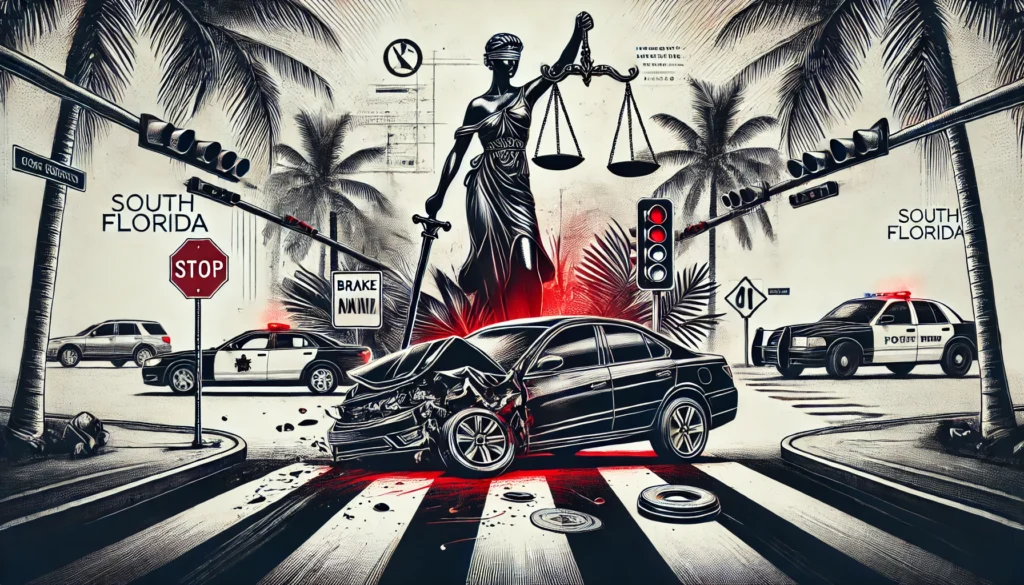Navigating Car Accident Claims in South Florida: Essential Legal Tips for Drivers

Car accidents are an unfortunate reality of life in South Florida, where the bustling roads, unpredictable weather, and heavy traffic often lead to collisions. Whether you’re a resident or a visitor, knowing your legal rights and responsibilities after an accident can help you avoid costly mistakes and ensure you’re properly compensated. Here’s a guide to navigating car accident claims in South Florida, so you can protect yourself on the road and during the claims process.
1. Know Your Insurance Coverage in Florida
Florida is a no-fault insurance state, which means that if you are involved in a car accident, your own insurance will cover your medical expenses, lost wages, and other damages, regardless of who was at fault. Florida law requires drivers to carry Personal Injury Protection (PIP) coverage, which typically covers up to $10,000 in medical expenses.
However, PIP does not cover all types of damages, and there are limitations. It’s crucial to understand the specifics of your insurance policy, including:
- PIP: Covers medical bills, lost wages, and other essential expenses.
- Property Damage Liability: Covers damages to another person’s vehicle.
- Bodily Injury Liability: Covers injuries to others if you’re at fault.
Make sure your policy includes adequate coverage, especially for property damage and bodily injury, as South Florida’s busy roads can often lead to significant accidents.
2. Document the Scene and Gather Evidence
After a car accident in South Florida, it’s important to document everything. Here’s a checklist to ensure you gather all the necessary information:
- Take Photos: Capture the damage to both vehicles, license plates, road conditions, traffic signs, and any visible injuries.
- Get Witness Information: If there are any witnesses, ask for their contact details. Their statements can be crucial when determining fault.
- Police Report: Always call the police after an accident, especially if there are injuries or significant damage. A police report helps establish an official record of the accident.
- Medical Documentation: Even if injuries seem minor, visit a doctor immediately. Medical records can be vital if you decide to file a claim later on.
Having clear documentation will support your case if there is a dispute over liability or insurance claims.
3. When to Contact a Lawyer
While many car accident claims in Florida are resolved without legal assistance, there are situations where having a lawyer can be crucial:
- Serious Injuries: If you’ve suffered significant injuries or require ongoing medical treatment, hiring an attorney ensures you’re not shortchanged in the settlement.
- Disputes Over Fault: If the other driver denies liability or there’s a disagreement over who caused the accident, legal advice can help you navigate the claims process.
- Insurance Denials: Sometimes, insurance companies may delay or deny claims. A lawyer can advocate on your behalf and help ensure your rights are protected.
- Multiple Parties Involved: If multiple vehicles are involved, or there’s ambiguity over liability, having a lawyer can help you navigate the complexities.
A personal injury lawyer specializing in South Florida car accidents can assist you in obtaining a fair settlement by negotiating with insurance companies or even filing a lawsuit if necessary.
4. Understanding the Statute of Limitations
In Florida, the statute of limitations for personal injury claims related to car accidents is four years from the date of the accident. This means you have four years to file a lawsuit for injuries sustained in a car crash. However, the clock may run out more quickly if you intend to pursue other types of claims, such as property damage.
It’s essential not to wait too long to take legal action. The sooner you consult a lawyer, the better your chances of gathering evidence and getting the compensation you deserve.
5. Dealing with Comparative Fault in South Florida
Florida follows a comparative fault rule, which means that if you are partially at fault in the accident, your compensation could be reduced based on your level of responsibility. For example, if you are found to be 20% at fault, your compensation will be reduced by 20%.
While comparative fault may complicate things, it’s important to remember that even if you share some responsibility, you can still seek compensation. A knowledgeable South Florida attorney can help demonstrate how much fault should be assigned to each party.
6. Special Considerations for South Florida Drivers
In addition to the basic legalities, there are some South Florida-specific factors to consider:
- Tourist Traffic: South Florida attracts millions of visitors each year, and tourists who may not be familiar with the area or its driving laws can contribute to accidents. If you’re involved in a crash with a tourist, navigating their insurance or legal responsibilities can be challenging, and having legal representation is even more important.
- Weather Conditions: Rain and storms are frequent in South Florida, especially during the summer months. Poor weather can create dangerous road conditions, and if poor weather contributed to the accident, your lawyer can help prove that conditions played a role in the crash.
- High-Speed Areas: Highways like I-95, I-595, and the Turnpike are prone to accidents due to high-speed driving. In these cases, injuries can be more severe, and you may need legal advice to navigate complex claims for serious injuries.
Final Thoughts: Stay Informed, Stay Protected
Car accidents in South Florida can be stressful and overwhelming, but understanding your legal rights and responsibilities is key to navigating the aftermath. Whether you’re dealing with an injury claim or a property damage dispute, knowing when to involve a lawyer and how to protect your interests can make all the difference.
Remember, you don’t have to handle it alone—consulting an experienced South Florida automotive lawyer can help ensure that you get the compensation you deserve. Be proactive, stay informed, and drive safely!